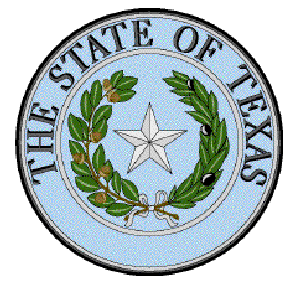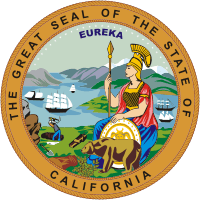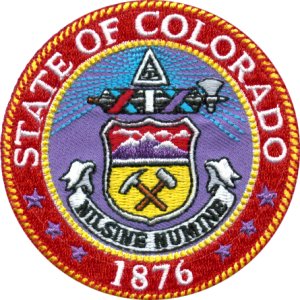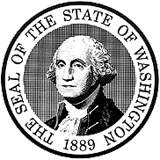Overview
Voters in eight states decided a total of 41 ballot propositions in November 2005. According to the Initiative and Referendum Institute at the University of Southern California, the number of propositions in 2005 was significantly lower than the total of 162 ballot measures voted upon nationwide in November 2004, but was unusually high for an off year. Eighteen of the 41 measures were placed on the ballot by citizen petition. The other 23 measures were placed on the ballot by state legislatures.
Texas

Gay rights were on the ballot in two high-profile state measures in 2005. According to the National Conference of State Legislatures, 13 states, including Michigan and Ohio, enacted ballot measures instituting same-sex marriage bans in 2004.  Kansas voters overwhelmingly passed a same-sex marriage ban in April 2005, by a margin of 71-29%. Texas joined the list in November 2005. Seventeen states have put same-sex marriage bans on the books as of the end of 2005. Many of these "protection of marriage" laws also serve as Trojan horses for vaguely worded stealth language that either denies legal protections to same-sex relationships (including domestic partnerships) or strikes legal protections for same-sex couples altogether, including adoption, hospital visitation, the ability to enter into wills and power of attorney, and other protections. Other states have similar ballot measures in motion for 2006, including California, where groups have mobilized to place an initiative on the ballot that would strike down protections for domestic partnerships that were enacted in 2003 and would also deny same-sex couples any other protections under the law. Kansas voters overwhelmingly passed a same-sex marriage ban in April 2005, by a margin of 71-29%. Texas joined the list in November 2005. Seventeen states have put same-sex marriage bans on the books as of the end of 2005. Many of these "protection of marriage" laws also serve as Trojan horses for vaguely worded stealth language that either denies legal protections to same-sex relationships (including domestic partnerships) or strikes legal protections for same-sex couples altogether, including adoption, hospital visitation, the ability to enter into wills and power of attorney, and other protections. Other states have similar ballot measures in motion for 2006, including California, where groups have mobilized to place an initiative on the ballot that would strike down protections for domestic partnerships that were enacted in 2003 and would also deny same-sex couples any other protections under the law.
 As in most cases in which same-sex initiatives have been placed on the ballot, same-sex marriage was already illegal in Texas. On 5 June 2005, Governor Rick Perry held a highly-publicized ceremony at Calvary Christian Academy in Fort Worth in which he signed a resolution passed by the State Legislature to amend the state constitution to ban same-sex marriage. The resolution signing was legally meaningless, since the ban still had to be approved by the voters in November, but the symbolism was striking, as was Perry's response to a question from a protester about gay veterans from Iraq who would not be able to come back to Texas and marry if the proposition became law. Perry said, "Texas has made a decision on marriage, and if there's a state with more lenient views than Texas, then maybe that's where they should live." Perry's political advisers acknowledged that the event was designed to be remembered by voters in Perry's 2006 re-election contest. As in most cases in which same-sex initiatives have been placed on the ballot, same-sex marriage was already illegal in Texas. On 5 June 2005, Governor Rick Perry held a highly-publicized ceremony at Calvary Christian Academy in Fort Worth in which he signed a resolution passed by the State Legislature to amend the state constitution to ban same-sex marriage. The resolution signing was legally meaningless, since the ban still had to be approved by the voters in November, but the symbolism was striking, as was Perry's response to a question from a protester about gay veterans from Iraq who would not be able to come back to Texas and marry if the proposition became law. Perry said, "Texas has made a decision on marriage, and if there's a state with more lenient views than Texas, then maybe that's where they should live." Perry's political advisers acknowledged that the event was designed to be remembered by voters in Perry's 2006 re-election contest.
The financing in the Proposition 2 campaign was about equally heavy in the pro- and anti-referendum camps. The main political action committee in favor of the measure was Texans for Marriage, which received backing from Bob Perry, a Houston real estate developer; Vaquillas LLC, a Laredo holding company; the Free Market PAC, headed by Kelly Shackleford, a heavy-hitter in Texas right-wing politics; James Leininger, a San Antonio businessman who frequently finances right-wing political campaigns. (Bob Perry also contributed more than $5 million in 2004 to the Swift Boat Veterans for Truth, which infamously ran advertisements during the presidential campaign questioning John Kerry's war record.) The Texans for Marriage PAC also received heavy backing from the Texas Restoration Project, a group connected with the successful effort in Ohio spearheaded by Columbus minister Rod Parsley in 2004 to pass Issue 1 (that state's same-sex marriage ban). The opponents of Proposition 2 (whose main PAC was called No Nonsense in November, spearheaded by a lobbying group called Equality Texas) were mainly small individual contributors, although the opponents of the measure also received significant financial support from an out-of-state PAC called Vote against the Amendment. That PAC received much of its funds from the National Gay and Lesbian Task Force.
In the final week of the campaign, a group connected with No Nonsense in November funded a wave of recorded "robo-calls" seeking to convince voters that voting for Proposal 2, because of the proposal's vague wording, could invalidate all Texas marriages. The calls did not succeed in changing many voters' minds, but they did mark a new sophistication in campaigns against same-sex marriage bans because of the way in which they made the calls seem as though they were coming from evangelical organizations.
A map of county voting patterns shows that the only county to vote against Proposition 2 was Travis County, which includes the city of Austin.
Proposition 2
The proposition's exact language: "The constitutional amendment providing that marriage in this state consists only of the union of one man and one woman and prohibiting this state or a political subdivision of this state from creating or recognizing any legal status identical or similar to marriage."
California

In his State of the State address on 5 January 2005, Governor Arnold Schwarzenegger introduced a broad slate of reform measures that he deemed necessary for improving the way the state was run. "The people of California demand reform," Schwarzenegger said. "If we here in this chamber don't work together to reform the government, the people will rise up and reform it themselves. And I will join them." The governor also launched an attack on so-called "special interests" that he described as standing in the way of his package of reforms, predicting that opponents of his proposals would "run TV ads calling me cruel and heartless." The governor was correct in his prediction that teachers' unions, educational advocacy groups, firefighter, police, and nurses' unions, and other organized entities that would have been heavily affected by the passage of the measures strongly opposed his proposals from the beginning. These groups raised millions of dollars to organize and run ads criticizing the governor, and they also appeared throughout the year at virtually all of the governor's public events to vocally protest his support of the measures.
 The top contributors to Schwarzenegger's measures included A. Jerrold Perenchio, the CEO of the Spanish-language television network Univision; John Gunn, the president of Dodge & Cox, an investment fund; the real estate development firm William Lyon Homes; the Security National Servicing Corporation, a financial services and mortgage company; and Carl Lindner, the owner of the Cincinnati Reds baseball team. Those opposing Schwarzenegger's agenda grouped themselves under the umbrella name Alliance for a Better California. The top contributors to the anti-initiative campaign were the California Teachers Association, the California State Council of Service Employees, the American Federation of State, County and Municipal Employees International (AFSCME), the Service Employees International Union Local 1000, and the Association of California School Administrators. The top contributors to Schwarzenegger's measures included A. Jerrold Perenchio, the CEO of the Spanish-language television network Univision; John Gunn, the president of Dodge & Cox, an investment fund; the real estate development firm William Lyon Homes; the Security National Servicing Corporation, a financial services and mortgage company; and Carl Lindner, the owner of the Cincinnati Reds baseball team. Those opposing Schwarzenegger's agenda grouped themselves under the umbrella name Alliance for a Better California. The top contributors to the anti-initiative campaign were the California Teachers Association, the California State Council of Service Employees, the American Federation of State, County and Municipal Employees International (AFSCME), the Service Employees International Union Local 1000, and the Association of California School Administrators.
In April 2005, Schwarzenegger succumbed to pressure from police and firefighters unions and abandoned his proposal to retool the state public employee pension program. However, on 14 June 2005, Schwarzenegger called for a November special election in which the fate of eight proposals, including most of the so-called "reform" measures that he had announced in January, would be decided, claiming disingenuously that there was no alternative to get the issues resolved. "The people are the ones who can cut through the chains of politics and the past, Schwarzenegger said. "It is from the people that a democracy gets its strength. And millions of people have signed the petitions to reform the budget, education and redistricting." The proposals that were slotted for a vote in the special election included all the measures listed below. All of the measures that Schwarzenegger supported ended up losing by significant margins at the polls on November 8, calling into question not only the viability of the measures themselves but the ability of Schwarzenegger to effectively govern the state.
Proposition 73
If passed, would have required parental notification before a female under the age of 18 could undergo an abortion.
Proposition 74
If passed, would have extended the required probationary period for new teachers in the state from two to five years and would have allowed school districts to fire employees after two consecutive unsatisfactory performance evaluations.
Proposition 75
If passed, would have required public unions to obtain each member's individual consent before using member dues for political purposes. Dues could still have been used for political purposes without this meticulous consent procedure, as long as spending was not directed "toward a specific result in an election."
Proposition 76
If passed, would have allowed the governor to declare a budget emergency and call the legislature into special session, as well as impose spending reductions, in situations in which state expenditures exceeded revenues by $250 million or more. Would also have limited year-to-year budget growth to the average growth in revenue for the past three fiscal years.
Proposition 77
If passed, would have transferred the authority to redraw congressional and legislative district boundaries from the state legislature to a panel of retired judges. Would have also required new districts to be drawn for the 2006 election.
Colorado

According to the National Conference of State Legislatures, TABOR (Taxpayer Bill of Rights) is "a set of constitutional provisions Colorado voters adopted in 1992 to limit revenue growth for state and local governments in Colorado and to require that any tax increase in any state or local government (counties, cities, towns, school districts and special districts) be approved by the voters of the affected government". TABOR also mandated that any spending and revenues above the rate of inflation and increase in population be returned to the taxpayers. TABOR also has a unique "ratchet-down" provision that mandates that the cap on state spending decrease proportionately along with any decrease in state revenue.
At first, TABOR was highly successful because of the boom in Colorado's economy during the 1990s. However, Colorado was hit with a major economic retraction in 2000 and 2001. In addition, in 2000, Colorado voters passed Amendment 23, which mandates that the legislature increase funding on per-pupil K-12 education by the rate of inflation plus one percentage point annually through the year 2010. Even with Amendment 23, Colorado ranked 47th in the nation for state tax funds spent in support of higher education per $1000 of personal income.
Republican Governor Bill Owens was previously a strong supporter of TABOR. After the Democrats regained control of both houses of the state legislature in 2004, however, Owens pledged to work with the Democrats to put Referendum C and D on the ballot. On 1 November 2005, Referendum C passed, while Referendum D failed to pass.
Referendum C
Puts into effect a temporary lift on TABOR spending limits and allows the state to keep $3.7 billion over 5 years that would have otherwise been mandated by TABOR to be returned to taxpayers.
Referendum D
If passed, would have required the issuing of $2.1 billion in bonds and loans to the state for road improvements, fire and police pensions, and school maintenance.
Sources
Multiple news and wire sources from 2005 and from previous election cycles, including the Associated Press, United Press International, CNN, the New York Times, and various metropolitan and Michigan newspapers, were used in the research that went into creating this website, as were the websites of numerous state and local election and campaign finance boards and departments. Also especially useful in background and historical research were: The Almanac of American Politics 2006 by Michael Barone and Richard Cohen [National Journal Group 2005]; Profiles of America, edited by David Garoogian [Grey House Publishing 2003, 2nd edition]; The 2005 New York Times Almanac, edited by John Wright [Penguin Books 2004]; and Facts about the Cities, compiled by Allan Carpenter with Carl Provorse [HW Wilson Company 1996, 2nd edition]. The United States Census website and Ron Gunzberger's Politics1.com were invaluable online resources.
Maine

In March 2005, both houses of the Maine legislature passed a bill amending the Maine Human Rights Act to prohibit discrimination on the basis of sexual orientation in employment, housing, credit, public accommodations and education. Governor John Baldacci, who strongly pushed for the bill's passage, signed the bill into law, but Maine has a provision called the "people's veto" that allows the overturning of laws if citizens' groups collect a given number of signatures within 90 days. As soon as Baldacci signed the bill into law, a group called Coalition for Marriage announced its determination to overturn the law, claiming that its protections were the first step toward legalizing same-sex marriage in Maine. A group supporting the law also mobilized, calling itself Maine Won't Discriminate. The Coalition for Marriage collected funds from the Christian Civic League of Maine and from a number of large individual contributors; Maine Won't Discriminate also collected funds from individual contributors, including some out-of-state contributors. Despite a strong push by right-leaning religious groups to pass the initiative, it was defeated by a significant margin at the polls.
Question 1
If passed, would have repealed a law passed in March 2005 outlawing discrimination on the basis of sexual orientation.
New Jersey
Prior to the approval of Public Question 1 (see below), New Jersey was one of eight remaining states in the Union without the office of lieutenant governor. The debate over gubernatorial succession and whether the state should have a lieutenant governor was re-ignited (there were earlier debates over the issue in the 1940s and 1970s) when Christie Todd Whitman left the governor's office unoccupied when she was nominated to be the administrator of the EPA in January 2001, and again when James McGreevey resigned the position in November 2004. The issue of establishing the office of lieutenant governor had added significance in New Jersey because it is the only state in the Union that allows an acting governor to continue presiding over the Senate (four other states allow for the elevation of the Senate President to acting governor status in the event that the office becomes vacant). The seven remaining states without lieutenant governors are Arizona, Maine, New Hampshire, Oregon, Tennessee, West Virginia, and Wyoming. New Jersey's first lieutenant governor will not be elected until 2009.
Public Question 1
Adds provision to the state constitution creating the office of lieutenant governor.
Ohio

Voters in the Buckeye State had to decide on a wide array of ballot measures in 2005. Among them was a state bond measure and a package of four reform measures backed by a PAC called Reform Ohio Now and by a host of activists and unions. The four reform measures were opposed by a PAC called Ohio First and by a coalition of evangelical business groups. Evangelical groups also opposed Issue 1 because it did not include provisions banning funds for stem-cell research. The redistricting measure, Proposal 4, was strongly backed by California Governor Arnold Schwarzenegger, who visited the state to campaign on behalf of it and also recorded automated phone messages urging voters to consider voting for it.
Issue 1
Authorizes the state government to spend bonds on economic development, particularly high-tech and science-related development. Informally called the "Third Frontier" initiative, this measure is similar to one rejected by the voters in November 2003.
Issue 2
If passed, would have given citizens the right to obtain an absentee ballot for any reason up to 35 days before an election.
Issue 3
If passed, would have imposed individual campaign contribution limits of no more than $25,000 per year.
Issue 4
If passed, would have created a nonpartisan commission of judges to make redistricting decisions. Similar to California's Proposition 77, which also failed at the polls.
Issue 5
If passed, would have created an independent, bipartisan board to oversee elections, taking the responsibility away from the Secretary of State
Washington State

Washington State voters went to the polls to decide on a slate of six major initiatives, including a smoking ban, a medical malpractice reform measure, a fuel tax repeal, and a measure giving the state auditor major new powers to conduct performance audits of state and local agencies. The fight over the medical malpractice initiative was the most expensive initiative campaign in Washington State history, with $15 million being spent by both sides. Voter turnout was high, ranging between 46-69%, which was not unexpected, but was nevertheless significant given the off-year election and the exhausting and protracted aftermath of the 2004 gubernatorial contest between Christine Gregoire and Dino Rossi.
Initiative 901
Imposes a statewide ban on both indoor and outdoor smoking in public places, forbidding smoking within 25 feet of the windows or entrance of a public building.
Initiative 912
If passed, would have repealed three motor vehicle fuel tax increases enacted by the state legislature in 2005.
Initiative 330
If passed, would have changed laws on claims for negligent health care by (among other things) limiting non-economic damages to $350,000 and capping attorneys' fees.


|